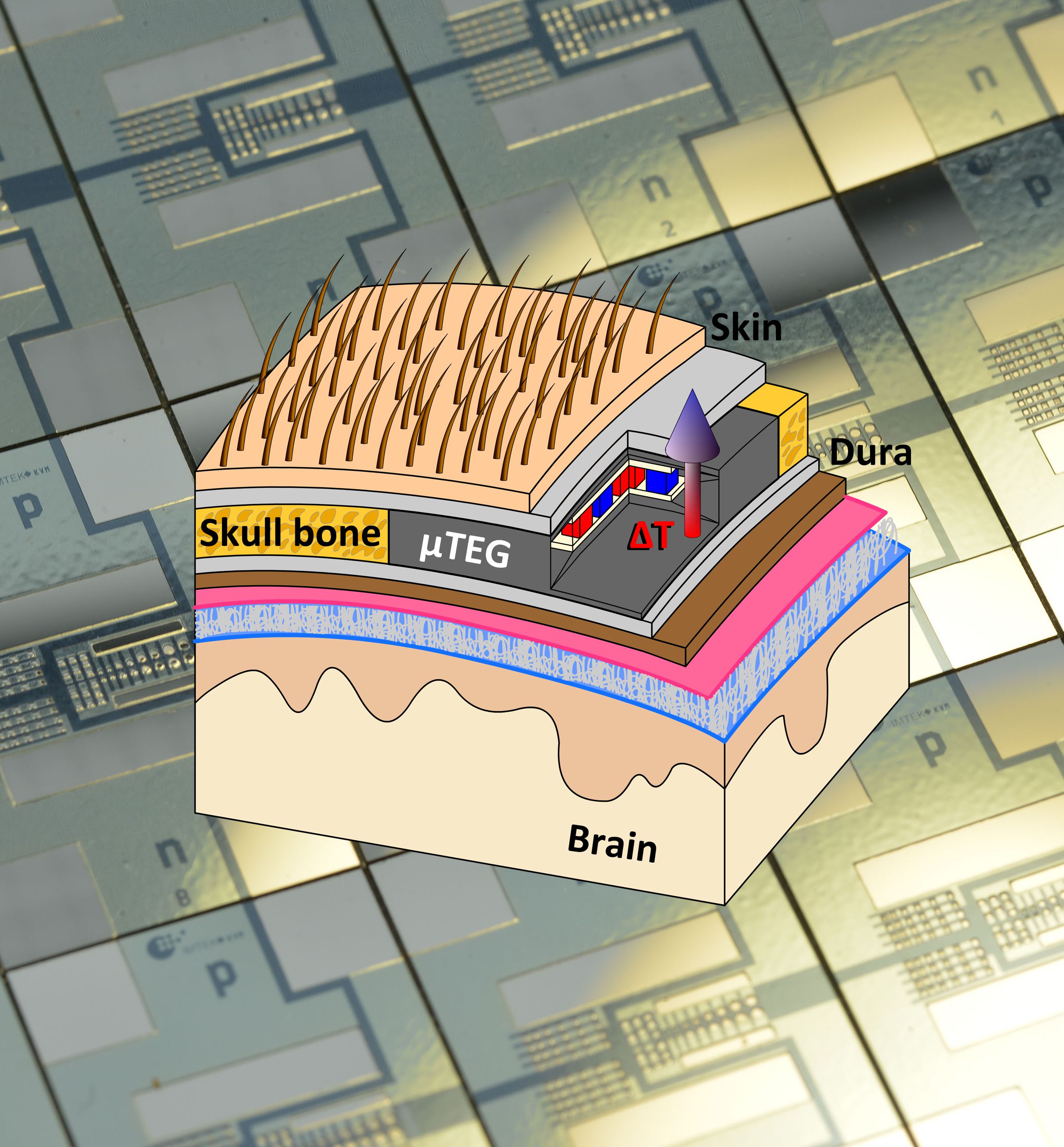Projects
SEAM-TEG: Thermoelectric generator modules for Smart Energy-Autonomous Micronodes

Project description
"Smart Energy-Autonomous Micro Nodes" - SEAMs - are a new type of neuro implants enabling the detection and processing of brain wave patterns from implanted neuro electrodes as well as wireless transfer of data to an ex-vivo interface or in-vivo analysis followed by direct brain stimulation.
The project goal of SEAM-TEG is the fabrication of an implantable and fully autonomous energy source based on thermoelectric energy harvesting. Herby a small electric energy can be obtained from a temperature gradient. During the project the temperature gradient between the brain surface and the epidermis (implantation in the cranial bones) and between skin and environment ("Energy patches") are investigated. Both concepts can greatly improve patient comfort and reliability of the implants.
The necessary, highly specialized, thermoelectric generators (TEGs) will be fabricated based on a novel microfabrication process, using thick laminate photoresist templates and electrochemical deposition for structuring the thermoelectric elements.
Especially for the in-vivo application, the thermal conductivity of the generators is matched to the conductivity of the skull in order to avoid influences on the brain.
Temperature measurements in the brain, together with literature data, provide the boundary conditions for the generator design. They are carried out according to availability in animal models and in patients.
For efficient power management low-voltage step-up converters are developed that enable energy harvesting from the low output voltages of thermal generators. For the transdermal generator system a novel combination of up-conversion and wireless energy transfer is developed.
The new generator systems are integrated with the associated power management electronics in biocompatible housing and adapted for testing in an animal model.
The necessary, highly specialized, thermoelectric generators (TEGs) will be fabricated based on a novel microfabrication process, using thick laminate photoresist templates and electrochemical deposition for structuring the thermoelectric elements. The deposited materials will be further improved by a specialized annealing process, in order to reach the desired high thermoelectric conversion efficiencies. The TEGs will finally be thermally matched to the properties of the skull, to avoid excessive local cooling or heating of the brain.
Furthermore, low-voltage step-up converters with high efficiency at low voltages and small size are studied to allow for a reliable energy harvesting from the expected small temperature gradients in the range of a few Kelvin. The input voltage and impedance of the step-up converter will be matched to the properties of the optimized TEGs in order to achieve an efficient interface and a stable output voltage. For this purpose novel circuit concepts are tested already and will be further developed, minimized and optimized.
The novel generators and step-up converters will be integrated into biocompatible housings, which will also serve as the mechanical and thermal link to the human body. The final system will be used in a SEAM demonstrator for the early seizure detection and intervention in epilepsy patients.
Start/End of project
01.03.2011 until 28.02.2017
Project manager
Dr. Uwe Pelz (Prof. Dr. Peter Woias)
Contact person
Dr. Uwe Pelz
Phone:0761/203-7503
Email:uwe.pelz@imtek.de
Partners
Uniklinik Freiburg:
Prof. Andreas Schulze-Bonhage, Dr. Tonio Ball, Dr. Mortimer Gierthmühlen, Prof. Volker Arnd Coenen
IMTEK:
Prof. Thomas Stieglitz
Keywords
Thermoelektrik, Bismuttellurid, elektrochemische Abscheidung, mikro-Generator, Implantat, Neuro, thermoelectricity, bismuth telluride, electrochemical deposition, micro generator, implant, neuro

